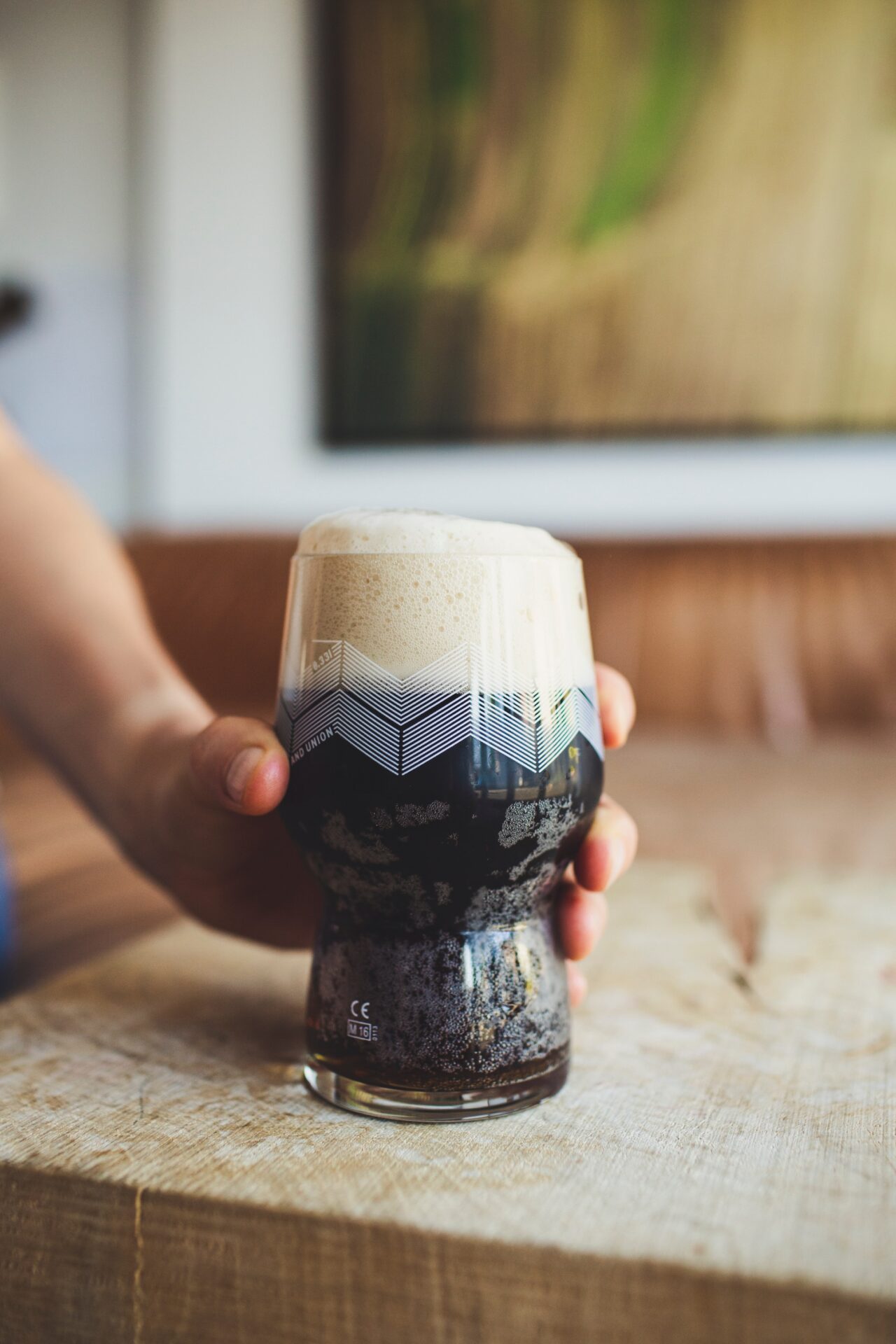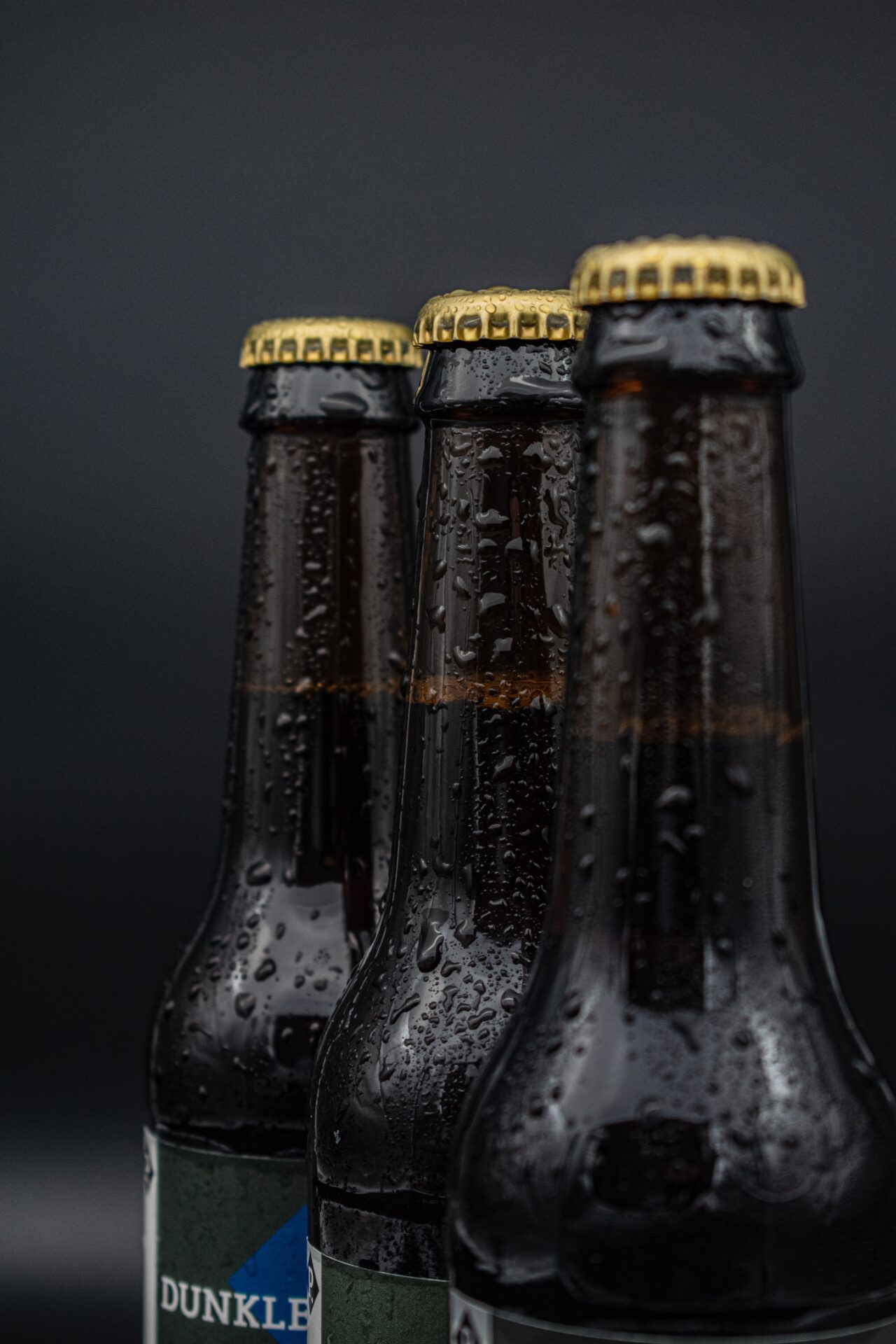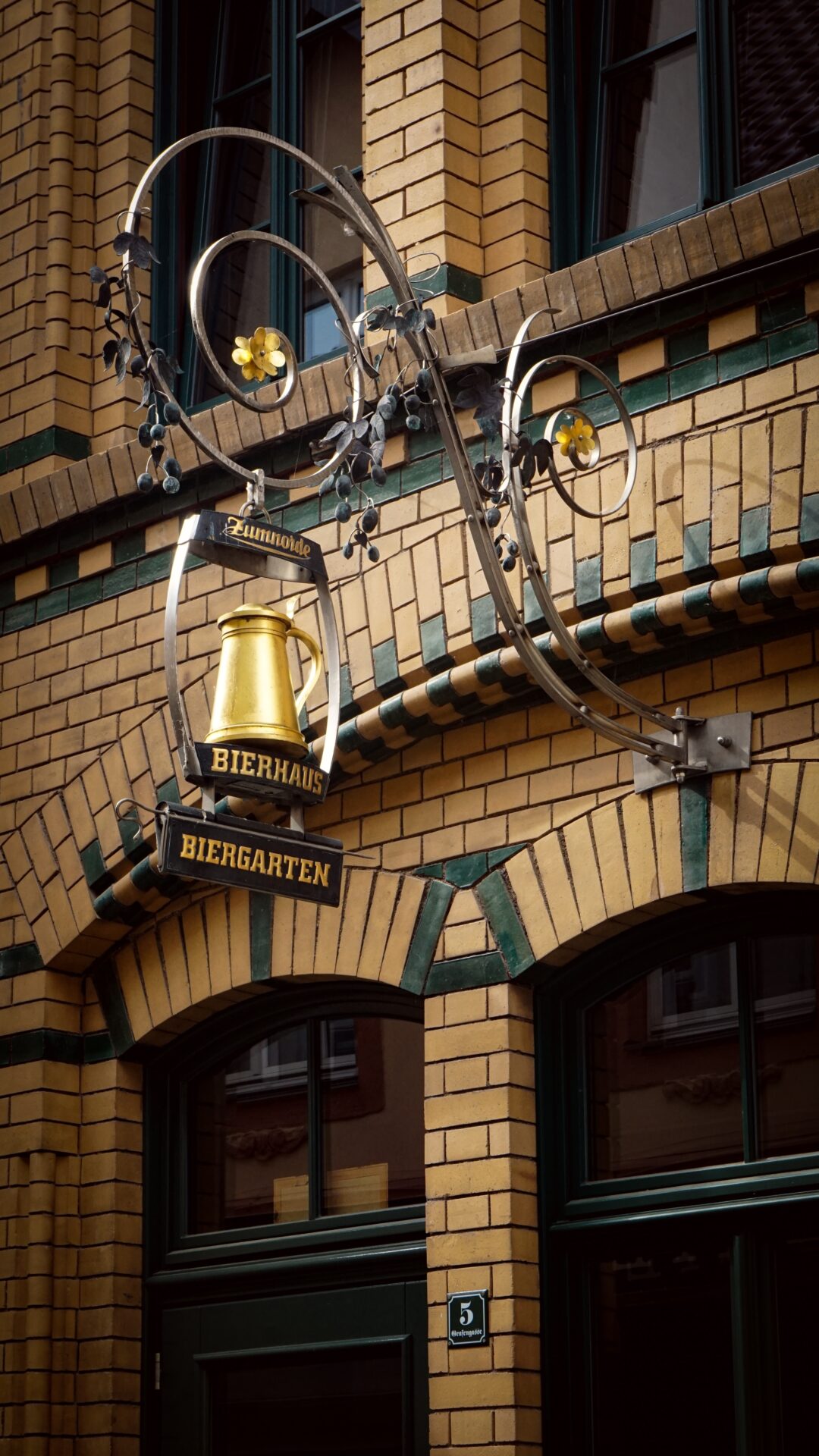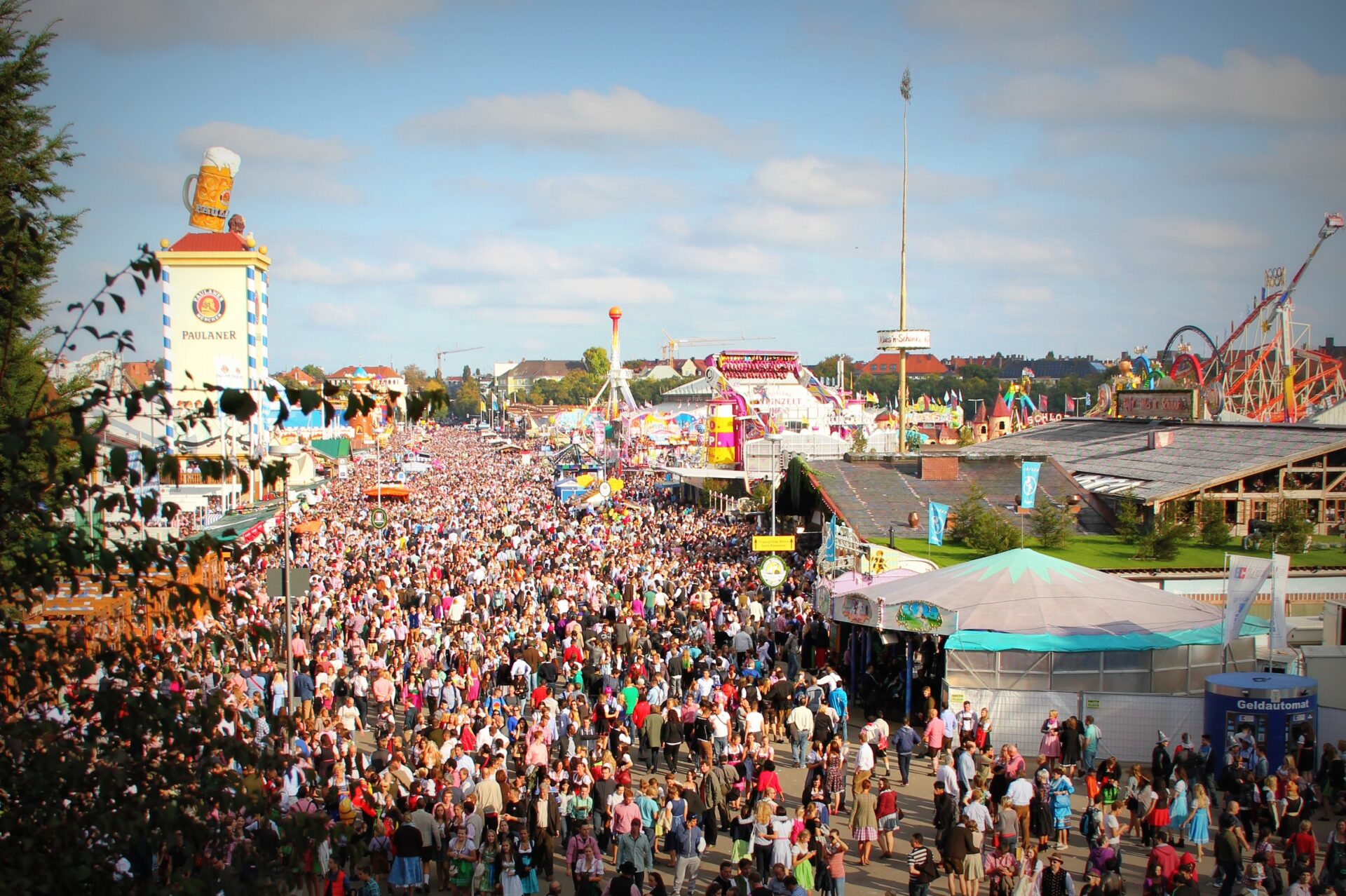If you have ever been to Germany, or simply a US-based German Biergarten, you’ll know already just how many diverse styles of beer they offer. Although most German brews tend to be lagers, they have so many different names that, for those new to the German beer scene, it can be difficult to differentiate them.
Germany is famous for its dark lagers; even the Japanese brewer Sapporo now makes a black lager called Sapporo Dark. Of course, like many of the larger brewers in the USA, including the mighty Anheuser-Busch, Sapporo’s heritage can be traced back to the traditions of German lager brewing.
Among the dark lagers of Germany, two varieties stand out: Schwarzbier and Dunkel. Both beers showcase the rich history and brewing traditions of Germany while offering unique flavors and characteristics.
In this post, we will delve into the world of Schwarzbier and Dunkel, exploring their origins, ingredients, brewing processes, flavor profiles, and cultural significance. By the end, you’ll have a deeper understanding of these dark German lagers and be better equipped to choose the perfect brew for your palate!
Origins and History of Schwarzbier and Dunkel Lagers

To appreciate Schwarzbier and Dunkel fully, it’s essential to understand their origins and historical context. Schwarzbier, also known as black beer, traces its roots back to the Middle Ages in the regions of Thuringia and Saxony.
During this time, brewers utilized the available ingredients and techniques to create a dark and flavorful beer. Schwarzbier was traditionally brewed using a combination of roasted malt and a variety of hops, resulting in its distinct dark color and complex flavor profile.
Schwarzbier gained popularity due to its smoothness and easy-drinking character. It became a staple in the regions where it originated, enjoyed by both locals and visitors.
Over time, Schwarzbier’s reputation spread throughout Germany and began to garner recognition as a distinct beer style. Today, it is produced by breweries across the country and has even found popularity on the international craft beer scene.
On the other hand, Dunkel, meaning “dark” in German, emerged in Bavaria during the 16th century. It was initially a term used to describe any dark beer, as most beers produced during that time had a darker hue.
However, as brewing techniques evolved and specific styles began to emerge, Dunkel became associated with a particular brewing style characterized by a rich maltiness and deep amber color.

Dunkels were typically brewed with Munich malt as their base, which gave them a distinct malty sweetness. This malt, combined with the careful selection of hops, resulted in a well-balanced beer with a nuanced flavor profile.
The popularity of Dunkel grew throughout Bavaria, becoming an integral part of the region’s beer culture. It became a staple at Bavarian beer gardens, where locals and visitors could enjoy its rich flavors alongside traditional Bavarian cuisine.
Both Schwarzbier and Dunkel have historical significance in their respective regions. They represent the brewing traditions and expertise of their origin areas, providing a glimpse into the brewing practices of the past.
Today, these styles continue to thrive, delighting beer enthusiasts with their unique flavors and serving as a testament to the enduring legacy of German beer culture.
The Brewing Methods and Ingredients of Schwarzbier vs Dunkel
Schwarzbier and Dunkel share some similarities in terms of ingredients and brewing methods. Both styles use a combination of barley, water, hops, and yeast.
However, the key difference lies in the malt selection and brewing process, which contribute to their distinct flavor profiles.
Schwarzbier relies on roasted malts, which contribute to its dark color and provide a subtle roasted or coffee-like flavor. The malt bill for Schwarzbier usually includes a mix of dark malts, such as Carafa Special and Chocolate malt.
These malts undergo a roasting process that brings out their characteristic flavors, which are carefully balanced with a selection of hops to achieve a harmonious taste.
The brewing process involves precise temperature control during mashing, fermentation, and conditioning. This ensures that the roasted flavors are present but not overpowering, resulting in a clean, crisp beer with moderate bitterness.
Dunkel, on the other hand, uses Munich malt as its base, giving it a deeper amber hue and a more pronounced malty character. Munich malt is kilned at higher temperatures, resulting in a malt that has a rich, toasty sweetness.
This malt is the foundation of Dunkel’s flavor profile, providing notes of toasted bread, caramel, and sometimes a hint of nuttiness.
In addition to Munich malt, Dunkel may also include other specialty malts like Vienna or Crystal malt to enhance its complexity. The brewing process for Dunkel often involves decoction mashing, a traditional technique where a portion of the mash is boiled and then returned to the main mash to raise the temperature.
This method helps develop the malt flavors and adds depth to the beer, while the fermentation and conditioning process further refines the flavors. As a result, the malt sweetness shines through while maintaining a balanced bitterness.
Both Schwarzbier and Dunkel benefit from the use of specific yeast strains that are well-suited to their respective styles. These yeasts contribute to the fermentation process, converting sugars into alcohol and imparting subtle flavors.
The choice of yeast can significantly influence the final characteristics of the beer, ensuring that Schwarzbier and Dunkel exhibit their unique profiles.
Throughout the brewing process, careful attention is paid to temperature, fermentation time, and maturation. These factors play a crucial role in achieving the desired flavors and ensuring the overall quality of the beer.
The brewers’ expertise and adherence to traditional methods contribute to the exceptional taste and consistency of Schwarzbier and Dunkel.
Schwarzbier vs Dunkel: The Flavor Profile
When it comes to flavor, both Schwarzbier and Dunkel offer distinct experiences, each with their own unique set of characteristics.
Official BJCP Style Guidelines Vital Schwarzbier Statistics
| IBU | 20 - 35 |
| SRM | 19 - 30 |
| OG | 1.046 - 1.052 |
| FG | 1.010 - 1.016 |
| ABV | 4.4% - 5.4% |
Schwarzbier is known for its lighter body and drier finish compared to other dark beers. It presents a beautiful dark brown to black color, often with ruby highlights when held up to the light.
The aroma of Schwarzbier can vary, but typically includes subtle roasted notes, reminiscent of coffee and dark chocolate. The roasted malts used in its base malt contribute to these flavors without overpowering the overall profile. The aroma may also carry hints of caramel or toffee, adding a touch of sweetness to the nose.
Upon taking the first sip, Schwarzbier reveals a delicate balance of flavors. The roasted malt character shines through, providing a mild roasted coffee-like taste that is both pleasant and approachable.
The roasted notes are usually complemented by a restrained bitterness, allowing the malty backbone to take center stage. The bitterness level can vary, but it generally remains moderate, ensuring a smooth and well-rounded drinking experience.
Schwarzbier’s flavor profile is further enhanced by a subtle sweetness that helps to round out the beer. This sweetness is often described as caramel-like and plays a supporting role, harmonizing with the roasted elements rather than dominating the overall taste.
The malt sweetness and roasted effect interplay gracefully, offering complexity and depth to the flavor profile. Schwarzbier is revered for its crisp and clean finish, which leaves a mild roasted aftertaste that lingers briefly on the palate, inviting another sip.
Official BJCP Style Guidelines Vital Munich Dunkel Statistics
| IBU | 18 - 28 |
| SRM | 17 - 28 |
| OG | 1.048 - 1.056 |
| FG | 1.010 - 1.016 |
| ABV | 4.5% - 5.6% |
In contrast, Dunkel presents a more robust and malt-forward flavor profile. It boasts a beautiful deep amber to dark brown color, showcasing the rich caramel hues. The aroma of Dunkel often evokes toasted bread or freshly baked crust, providing a comforting and inviting experience. Additionally, notes of caramel, toffee, and even a hint of nuttiness can be detected, adding further layers of complexity.
When it comes to taste, Dunkel shines with its full-bodied and malt-focused nature. The malt sweetness takes the forefront, delivering a rich and satisfying flavor. The Munich malt, the backbone of Dunkel, imparts a pronounced caramel-like sweetness that creates a pleasant, almost dessert-like character.
This sweetness is well-balanced by a mild hop bitterness that prevents the beer from becoming overly cloying. Once combined, the malt sweetness and subtle bitterness create a harmonious interplay on the palate.
Dunkel’s flavor profile is often described as toasty, with flavors of toasted bread or biscuit-like malt. This toasty character contributes to the beer’s overall depth and provides a satisfying richness.
Additionally, Dunkel may exhibit hints of chocolate, nuts, or even dark fruit notes, depending on the specific brewing techniques and malt choices.
The finish of Dunkel is typically smooth and velvety, leaving a lingering sweetness and a subtle roasted aftertaste. The beer’s medium body adds to its overall richness and enhances the mouthfeel, making it a highly enjoyable and satisfying beer to savor.
Schwarzbier vs Dunkel: Food Pairings

Both Schwarzbier and Dunkel offer a delightful range of flavors, yet they showcase different aspects of the dark beer spectrum.
Schwarzbier’s lighter beer body, drier finish, and subtle roasted notes make it an approachable and versatile option. It pairs well with various dishes, including grilled meats, sausages, and even chocolate desserts.
On the other hand, Dunkel’s malt-forward complexity, with its toasty sweetness and rich caramel flavors, makes it an ideal companion for hearty Bavarian cuisines, such as pork dishes, pretzels, or roasted meats.
The Cultural Significance of Schwarzbier and Munich Dunkel
Schwarzbier and Dunkel are deeply ingrained in German beer culture and hold significant cultural importance. Both styles are not only beloved by beer enthusiasts but also symbolize the rich brewing heritage and traditions of Germany.
Wherever in the world there’s a German brewpub or a Biergarten, you will find at least one example of both a Schwarzbier or Munich Dunkel.

Schwarzbier, with its origins in the regions of Thuringia and Saxony, carries a special significance in those areas. It has become a symbol of the brewing traditions and craftsmanship of the region.
Local breweries take pride in producing Schwarzbier, using time-honored techniques passed down through generations. The beer is celebrated during various beer festivals and events, where locals and visitors can indulge in its flavors and experience the unique cultural identity it represents.
Schwarzbier has also gained recognition beyond its birthplace and is now enjoyed throughout Germany and worldwide, making it a notable style in the craft beer scene.
Dunkel, being a Bavarian specialty, holds great cultural significance in southern Germany. Bavaria is renowned for its beer culture, and Dunkel plays a prominent role in that tradition. It is closely associated with the vibrant beer gardens and beer halls of Bavaria, where locals and tourists gather to enjoy the convivial atmosphere and partake in the region’s culinary delights.
Dunkel’s rich maltiness and full-bodied nature perfectly complement the hearty Bavarian cuisine, making it a natural choice when indulging in traditional dishes such as pork knuckles, sausages, or pretzels.
It is also a prominent feature during Oktoberfest, the world-famous beer festival held annually in Munich. Millions of visitors flock to Oktoberfest to immerse themselves in Bavarian culture, and Dunkel is among the beer varieties of choice, adding to the festive atmosphere and serving as a symbol of Bavarian brewing heritage.

Both Schwarzbier and Dunkel have become ambassadors of German beer culture, representing the country’s commitment to quality brewing and its reputation as a beer-loving nation. They showcase the depth and diversity of German beer styles, capturing the essence of centuries-old traditions while adapting to modern brewing practices.
Furthermore, these beers play a role in fostering social connections and community engagement. In Germany, beer is often enjoyed in a communal setting, where friends, family, and even strangers gather to share stories, laughter, and good times.
Schwarzbier and Dunkel, with their inviting flavors and approachable profiles, facilitate these connections, creating a sense of camaraderie and conviviality.
Moreover, the cultural significance of Schwarzbier and Dunkel extends beyond Germany’s borders. With the rise of craft beer and the global popularity of German beer styles, these lagers have found their way into the hearts and glasses of beer enthusiasts worldwide.
These beers serve as a gateway to German brewing traditions, allowing individuals from different cultures to experience and appreciate the rich heritage of German beer craftsmanship.
Schwarzbier vs Dunkel: Which Lager is Right For You?
When faced with the decision of choosing between Schwarzbier and Dunkel, it ultimately comes down to personal preference and the desired flavor experience. Both styles offer distinct characteristics that can cater to different palates and occasions for drinking beer.
If you prefer a lighter and drier dark beer with subtle roast malty notes, Schwarzbier is an excellent choice. Its moderate bitterness, clean finish, and restrained sweetness make it a highly approachable beer.
Schwarzbier’s roasted malt notes provide a touch of complexity without overwhelming the palate. This style is well-suited for those seeking a refreshing and easy-drinking dark lager that can be enjoyed year-round.
Schwarzbier pairs exceptionally well with various dishes, including grilled meats, roasted vegetables, and even desserts like chocolate-based treats. Its versatility and balanced profile make it a reliable choice for different culinary experiences.
On the other hand, if you crave a richer and maltier experience with notes of caramel and toffee, Dunkel is the way to go. Its medium body and pronounced malt sweetness deliver a more robust and satisfying flavor profile.
Dunkel’s toasty and caramel-like characteristics provide a depth that is well-suited for those seeking a fuller-bodied beer. This style pairs wonderfully with hearty Bavarian cuisine, such as sausages, roasted meats, or pretzels. The richness of Dunkel enhances the flavors of these dishes, creating a harmonious culinary experience.
Additionally, Dunkel can be enjoyed during colder months, as its warming qualities and malt-forward profile provide comfort during chilly weather.
Schwarzbier vs Dunkel: Popular Examples
If you are looking to try a Schwarzbier or a Dunkel Lager, there are many options available here in the USA, including traditional examples from Germany and those produced by the craft breweries of America.
For the original Schwarzbier experience, try and get your hands on a bottle of Köstritzer Schwarzbier from the spa town of Bad Köstritz in the Thüringen region of Germany.
Having opened their brewery in 1543, the brewmeisters of the town encouraged visitors to drink their black lager, claiming it would make them stronger and healthier.
More recently, in 1991, the original Köstritz Brewery joined the Bitburger Brewery Group and reintroduced the original Köstritzer Schwarzbier back in 1993. If you only ever try one historical style of this complex beer this should be the go-to Schwarzbier, and preferably in Germany.
One of my favorite US-brewed Schwarzbiers comes from the Jack’s Abby brewery in Massachusetts and is known as Smoke & Dagger. Although it pours like an opaque stout American beer, it has the taste of a delicately smoked lager.
For a traditional Dunkel lager from Germany, Ayinger’s Altbairisch is considered one of the original Dunkels and a benchmark for the style. (it’s also widely available here in the US -bonus!) This outstanding dark lager (not black though!) embodies the toasty bread qualities and smooth mouthfeel of a Munich Dunkel very well.
Here in the US, Prost Brewing of Denver, Colorado brews a year-round Dunkel which offers the deep rich roasted chocolate and nutty flavors you would expect from the darker imported Munich grain.
With just a moderate bitterness to balance out the sweetness, it’s the ideal beer for drinking on a summer evening in one of Prost Brewing’s amazing biergarten locations around Colorado.
Schwarzbier vs Dunkel: Final Call
Whichever style you choose, both Schwarzbier and Dunkel offer exceptional representations of German brewing traditions and provide a glimpse into the rich tapestry of flavors found within the world of dark lagers.
So, embrace the opportunity to explore these styles and embark on a sensory journey through the depths of German brewing heritage. Prost!

